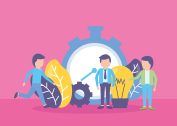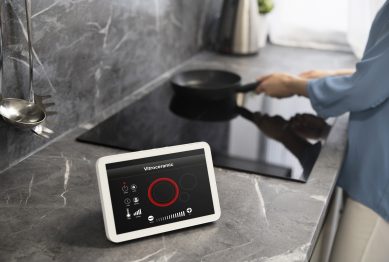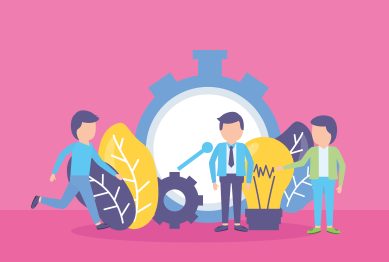In today’s digital-first world, information is coming at us nonstop. From endless email threads and social media notifications to an overabundance of apps and accounts, digital clutter is everywhere. As technology continues to integrate into nearly every aspect of our personal and professional lives, it’s easy to become overwhelmed by all the noise. That’s where digital decluttering comes in.
Digital decluttering helps you organize and simplify your digital environment to reduce distractions and increase productivity. By clearing out unnecessary data, apps, and files, you can improve focus, enhance decision-making, and reduce stress. This article will explore the benefits of digital decluttering, why it’s so important, and how to get started.

What Is Digital Decluttering?
Digital decluttering is the process of organizing and simplifying your digital tools, files, and online platforms. This could involve deleting unneeded files, organizing your inbox, removing unnecessary apps, or limiting digital distractions. The goal is to create a streamlined digital space that helps you focus and be more productive.
In business and strategy, digital decluttering can lead to better results by improving efficiency. By removing distractions and organizing digital tools, you give yourself the best chance to succeed.
Why Digital Decluttering Is Crucial for Better Focus
In today’s fast-paced world, staying focused can be a challenge, especially when you are constantly bombarded with digital distractions. Here’s how digital decluttering can help you stay focused and be more productive:
1. Reduces Cognitive Overload
When you constantly switch between tasks or keep jumping from one notification to the next, your brain becomes overwhelmed. Cognitive overload happens when there is too much information for the brain to process. As Harvard Business Review (2023) highlights, this can decrease your ability to concentrate and make decisions.
By decluttering your digital space, you reduce the amount of incoming data your brain needs to process. This can clear mental clutter and improve your focus.
2. Minimizes Distractions
Multitasking is often viewed as a skill, but research shows it can actually your focus. Stanford University (2022) found that multitasking makes it harder to complete tasks efficiently and accurately. Instead, it divides your attention and drains your cognitive resources.
Digital decluttering helps you eliminate distractions. By closing unused browser tabs, silencing unnecessary notifications, and removing apps you don’t need, you can create a digital environment that supports single-tasking, which helps you maintain better focus.
3. Enhances Productivity
A cluttered digital space often leads to inefficiencies. You spend time searching for files, digging through emails, and trying to remember which app you need to complete your tasks. By organizing your files, managing emails more effectively, and consolidating tools, you can boost your productivity.
Deloitte (2023) found that employees who simplified their digital tools saw an increase in performance and time management, which are key drivers of productivity.
4. Improves Mental Clarity
Digital clutter creates noise that can impact your cognitive function. Whether it’s a chaotic desktop, an inbox filled with unopened emails, or dozens of unread app notifications, clutter can cloud your mind. According to Stanford (2022), reducing these distractions leads to greater mental clarity and helps you think more clearly.
By focusing only on essential tools and eliminating irrelevant apps, you can create a mental environment conducive to clarity and deep thinking.
How to Get Started With Digital Decluttering
Ready to declutter your digital world? Here are practical steps you can follow to get started:
1. Tidy Up Your Email Inbox
Email overload is one of the most common forms of digital clutter. If your inbox is overflowing with newsletters and promotional offers, it’s time to take action.
- Unsubscribe from unnecessary email lists using services like Unroll.Me.
- Sort emails into folders based on urgency or categories like work, personal, or follow-up.
- Implement filters to automatically sort incoming emails.
By reducing email distractions, you’ll improve your ability to focus on critical messages.
2. Organize Files and Folders
Disorganized files make it harder to find what you need. If your desktop is cluttered with random, it’s time to create a system.
- Create folders for different categories of work, such as finances, personal, or projects.
- Use cloud storage like Google Drive or Dropbox to back up important files and keep them organized.
- Delete files that are outdated or no longer needed.
Organizing your files reduces wasted time and helps you stay focused on the task at hand.
3. Limit Your Digital Tools and Apps
Having too many apps and tools can be overwhelming and confusing. Streamlining your digital tools can save you time and mental energy.
- Consolidate apps: Use all-in-one apps like Notion or Evernote to manage tasks, notes, and projects in one place.
- Remove unused apps: Delete apps on your phone and computer that you rarely use. This will reduce distractions and free up storage space.
- Evaluate productivity tools: Use apps that add real value to your work, and eliminate those that don’t.
By reducing the number of tools you rely on, you can focus on what really matters.
4. Turn Off Notifications
Constant notifications pull your attention away from important tasks. Disabling unnecessary notifications helps you stay focused.
- Turn off non-essential notifications: Disable notifications from social media, shopping apps, and news apps unless they’re urgent.
- Use “Do Not Disturb” mode: Set your phone or computer to “Do Not Disturb” during deep work sessions.
- Limit your screen time: Set daily time limits for apps like Facebook, Instagram, or Twitter.
By limiting digital interruptions, you allow yourself to work without constant distractions.
5. Schedule Regular Digital Detoxes
Taking breaks from digital devices is essential for mental clarity. A digital detox helps you reset and recharge.
- Designate screen-free times: Set aside specific times each day to disconnect from your devices, such as during meals or before bed.
- Have digital-free days: Commit to at least one day each week where you disconnect completely from technology. Use this time to engage in offline activities like reading, hiking, or spending time with family.
Regular digital detoxes give your mind a break from digital clutter and allow you to recharge.
Conclusion
Digital decluttering is a powerful tool for improving focus, mental clarity, and productivity. As our lives become increasingly intertwined with technology, taking control of your digital environment is more important than ever. By reducing distractions, organizing files, and streamlining your digital tools, you can create a more focused and productive workspace.
By following these practical steps, you’ll not only improve your efficiency but also feel less overwhelmed by the digital noise surrounding you. Digital decluttering helps you stay on task, manage time more effectively, and build a healthier relationship with technology. Embrace these changes today, and you’ll be on your way to a clearer, more focused mind.
Reference
- Minimizes Distractions- https://www.refocusapp.co/
- Enhances Productivity- https://www.pandasecurity.com/
- Improves Mental Clarity- https://www.verywellmind.com/









